Sar-el is a non-profit service organization that facilitates volunteer opportunities for individuals who wish to support the Israeli Defense Forces (IDF) by performing non-combat, logistical, and maintenance work on IDF bases in Israel. The organization was founded in 1983 by General Dr. Ahron Davidi, a distinguished member of the IDF who was formerly head of the IDF Paratrooper and Infantry Corps, in response to labor shortages during the First Lebanon War. Since then, tens of thousands of volunteers have been recruited from over thirty countries to serve in various capacities on Israeli army bases. What volunteers do soldiers don’t have to do.
During my fortnight on the base, we only heard an air-raid siren once around 3:00 a.m. and hurried to the shelter as we had been instructed.
Israeli army bases come in all shapes and sizes and serve all sorts of purposes, some rather specialized. Last summer I spent two weeks volunteering on a huge army base called Tel Hashomer which is a thirty-minute drive from Tel Aviv. Volunteers are organized in groups based on language skills, age, and ability. My group was called Jabotinsky, after the legendary Russian born Zionist founder of the Jewish State who actively organized Jewish self-defense against anti-Semitic violence both in Russia and mandate Palestine. He was a prolific writer and the founder of the Herut Party, the predecessor of the modern-day Likud Party has been the dominant party in Israel since the Second Intifada in 2000.
My group had about thirty people, was mainly on the older side and was divided almost equally between male and female participants. Most of us came from abroad and on our own dime from as far away as Australia as well as from Europe — England, France, Italy, Germany, Norway, North America (Canada, U.S. and Mexico), and from Brazil in South America. About a third of us were not Jewish. Notably among the non-Jews were former U.S. military personnel including two marines and one army sergeant. They had all served several tours of duty in Iraq and Afghanistan, wanted to continue serving and had decided that this was the way that they wanted to do so.
We were given a little taste of army life. We were given uniforms that mainly did not fit, were asked to bring our own bedding, towels, and toilet paper and slept on cots in rooms with five or six fellow volunteers. Our group was guided in army life by three madrichot the first week and two during the second. The madrichot are young female soldiers and guiding us was part of their active service. The madrichot during the first week were all recent immigrants, one from Brazil, one from Belarus, and one from New Jersey who had all come to Israel for some sort of education program and grew to love the land so much that they decided to stay. During the second week both madrichot were sabras, born and raised in Israel. Our actual work was supervised by civilian contractors.
The job of the volunteers at my camp was to process the medical supplies and equipment for the entire Israeli army in the field, a huge task and a very serious one that had to be done with precision because a missing part could mean the difference between life and death. We assembled all sorts of different kits, everything from small ones that soldiers carried on their person for first aid in the field to rather large ones that were used by surgeons to perform operations in field hospitals.
We handled everything from defibrillators to trachea tubes to sunscreen and baby wipes, everything medical and hygienic that was needed to maintain soldiers in the field. Everything had to be done with precision because a missing item could be fatal. Each product was set up in a separate bin and we worked in assembly-line fashion. After putting together a set of say, 100 kits, if one or two items were found to be short or extra, we went and checked all of the kits to figure out what had gone wrong. The greatest advance in reducing and minimalizing casualties in modern warfare is getting medical assistance to those in need as quickly as possible.
During my fortnight on the base, we only heard an air-raid siren once around 3:00 a.m. and hurried to the shelter as we had been instructed. There were several on the base but we went to the one closest to our barracks. It was basically a culvert with a perpendicular concrete slab near the entrance. We all squished in and after the all clear was sounded hurried out to see the puff of smoke in the sky, the consequence of an Arrow anti-missile projectile that had been used to take out a cruise missile launched by the Houthis. Earlier in the war a missile had actually struck another part of the base but our movement on the base was restricted and we were not allowed to go and see the damage it had caused.
We had the weekend off during which we had to pack up our belongings and leave the base. Some of the volunteers spent the weekend down near the Gaza border where there were other volunteer opportunities, such as serving hot meals to soldiers who were rotating in and out of the Strip. I would have liked to do that myself but instead took the train from Tel Aviv to Afula where one of my cousins with whom I am very close has a farm near Mount Gilboa. There was no way that I was going to be allowed to come all the way to Israel without visiting him and his family. My cousin has five grown sons, all of whom have been called up during this war and have served an average of 400 days doing combat duty in the field. Thankfully none of them have been hurt. Not all Israeli families are the same but in that family they do not allow themselves to worry about that.
Earlier in the war during my last visit in 2023 my cousin told me that in spite of the fact that the young generation that make up the regular army were attached to social media, they turned out to be excellent soldiers — some observers are now calling them a Great Generation. Their minds have not been poisoned by Tik Tok, and I think the reason is that living in Israel, under constant enemy bombardment, their minds and their hearts are not empty like those of so much of the youth in the West.
The train ride from Tel Aviv to Afula and back again was pleasant and calm despite the fact that there could have been an air raid at any moment. Soldiers and civilians mixed courteously with the only difficulty being that some of us were cramped by our baggage, since for obvious reasons there are no baggage cars on Israeli trains. This social cohesion is a hallmark of Israeli society and I think its greatest strength. Those like me who come from abroad whether Jew or non-Jew come not only to serve but also because we want to be a part of that which is so much missing where we come from. One can certainly imagine someone being stabbed on a train in Israel by a terrorist. But unlike the fatal stabbing of the hapless Ukrainian immigrant Iryna Zarutska on a train in North Carolina, it’s hard to imagine such an attack happening in Israel without bystanders trying to stop it — or at least rushing to help her afterward.
READ MORE from Max Dublin:
Middle East Peace: The Days After the Day After
Qatar Is Not Part of the Solution
Leaders of the Free World: We’ve Been at War With Iran Since 1979

![Scott Bessent Explains The Big Picture Everyone is Missing During the Shutdown [WATCH]](https://www.right2024.com/wp-content/uploads/2025/11/Scott-Bessent-Explains-The-Big-Picture-Everyone-is-Missing-During-350x250.jpg)

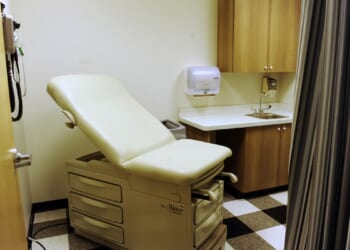

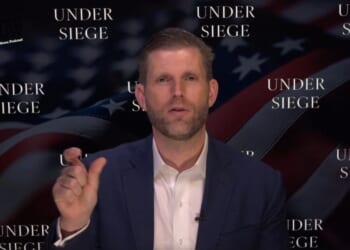
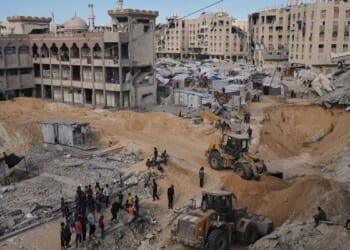

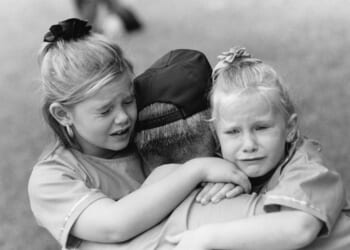
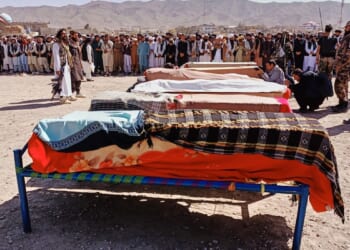
![Florida Files Supreme Court Case After Illegal Immigrant Truck Driver Kills Three [WATCH]](https://www.right2024.com/wp-content/uploads/2025/10/Florida-Files-Supreme-Court-Case-After-Illegal-Immigrant-Truck-Driver-350x250.jpg)





